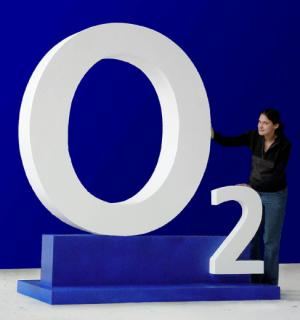Mobiles save British workers 20 minutes a day
23 March 2006 by axxxr The mobile phone sector was responsible for an increase of just under 1% of UK labour productivity, representing a financial boost of almost £9 billion in UK GDP in 2004, revealed a new report commissioned by O2.
It also estimates that UK workers can work for around 20 minutes less each day to achieve the same output thanks to the mobile phone. Additionally, over a third of the working population now receive a company mobile phone. These are just some of the findings from the latest report undertaken by The Centre for Economic and Business Research (cebr) which examines the impact of mobile telephones on the productivity and behaviour of UK business. In the strongest indication that the influence of mobile in business is on the rise, according to the study, if UK workers could spend 5% more of their time out of the office productively, this would be the equivalent of an extra 180 million hours of work every year, equating to around one third of the total productivity impact of mobile in the UK. Additionally, the mobile sector's share of investment in business communications has grown, soaring from 27% in 2000 to 42% in 2004 an investment in mobile totalling £61 billion a year. This reflects both a growth in the number of corporate mobile phone contracts, but also a switch towards more sophisticated mobile email and data services. Peter Erskine, chief executive officer of O2, said: "The cebr analysis confirms the increasing role that mobile plays in UK business life at every level. Mobile is already having a positive effect, but further substantial benefits can still be achieved from the increasingly sophisticated data services on offer." The report reveals that mobile workers now represent 27% of the total UK workforce, with 69% of the workforce considering mobile essential to conducting their jobs effectively. Mobile workers consist of those who spend more than a third of their working day out-of-the-office travelling, at meetings, working offsite or at home. Two thirds (more than 5 million) of UK mobile workers are found to be represented by mobile blue-collar workers. Peter Erskine added: "This split is interesting and conflicts with common perceptions of the mobile worker. Rather than solely being the preserve of bankers and media executives, as stereotypes dictate - mobile is now pervasive across all sections of business to the extent that most blue-collar workers see mobile as the essential business tool." However, the productivity benefit of mobile use is found to be disproportionately concentrated amongst two million mobile knowledge workers, a group of users characterised by high usage, who use mobiles primarily to maintain important relationships with customers and clients and remain in the loop with developments in the office. This group alone is responsible for one third of the total 600 million hours spent annually by UK workers on business trips. This study builds on similar report published by O2 and the cebr in July 2004 that predicted the mobile phone industry would contribute £50billion to UK GDP over the next 10 years and create 56,000 new jobs by 2013. Please view the full CEBR Report. (pdf)
|










 RSS feed
RSS feed